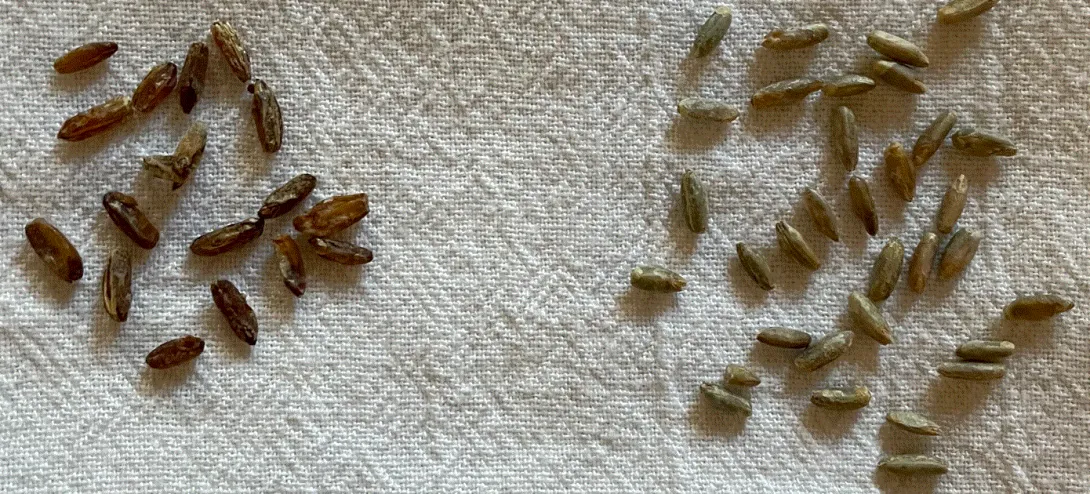I'm relatively new to sprouting grains. I sprouted some rye grains recently that I think I might have over-dehydrated because I used an oven that was probably too hot. The grains look a little shrunken, some a bit shriveled. Before sprouting they weighed 250g, they now weigh 218g. My question is whether or not I should bother milling them and using the flour and expect to get a decent result (even if I don't get the benefits of a sprouted grain). Thanks for any input.
Hi Sonia, This doesn't answer your question, but I don't see any need to dry sprouted grains unless you're going to store them. I sprout 200g of rye or wheat frequently. Before baking, I weigh the sprouts. I subtract any weight over 200g from the liquid in the recipe. Before using, I run the sprouts through the food processor. Wheat will form a ball whereas rye just looks really ground. If your sprouts are ready before you're ready to bake, you can refrigerate to stop any more growth.
Happy baking!
There’s a difference between making sprouted flour versus using fresh sprouted grains. Both will give you flavorful nutrition bread but they are not the same, if you dry your sprouted grains at too high a temperature you will create malt and you can only use a small amount in your bread or it will turn gummy.
Isand66, I think Crinwill is referring to future bakes where I want to use sprout grains. They suggest I use the freshly sprouted grain without dehydrating it. In terms of my current issue with over-dehydrated rye grains, it sounds like you're saying I inadvertently created malted rye! That's very interesting. I will mill it and do as you suggest: use in small amounts to avoid a gummy texture. Thanks for your input.
I believe the amylase content of malt is governed by the time the sprouting was allowed to occur before drying. This was discussed in this post:
https://www.thefreshloaf.com/comment/512736
If the sprouting was allowed to occur long enough to increase the amylase content of the grain, drying at a high enough temperature can be used to inactivate the enzymes
Crinwill, thanks for that input and I will try it. Have you tried this with a variety of rye recipes, including 100%?
have changed color, it might help judge hot hot the drying process actually was. Did they remain light in color? Why do you think they got too hot? They will certainly schrivel up even at low temps but a color change is more decisive.
of the overly-dried sprouted rye grains on the left and some unsprouted grains on the right. It looks like the sprouted grains got darker. Here was my method: I baked something in my oven, leaving my Challenger cast iron pan on the bottom rack to eventually take advantage of its residual heat. I turned the oven off and left the door open a few minutes to cool it down. I then put the sheet pan of sprouted grains in the oven, left the door open for a few minutes and then closed it for an hour or so. That's when I concluded they were in too long and at too hot a temp.
Not sure if it means anything but the jar of spelt grains I sprouted at the same time sprouted much faster. The rye grains really took their time and I'm not sure they were sufficiently sprouted when I finally moved on to dehydration.
Image

to go thru a maillard reaction
https://www.google.at/search?q=mailard&ie=UTF-8&oe=UTF-8&hl=en-at&client=safari
which rendered them into tasty bits with denatured enzymes. I don't see schrived up rootlets or sprouts. I would still mill them and add them to bread but they will behave like gluten free flour so I would suggest keeping the % of roasted flour small, under 30% of the total flour.
Great suggestion. Thank you!